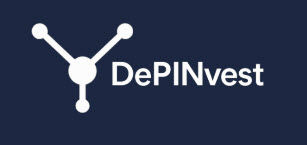Need some DePIN hardware? Like discounts? Of course you do…check out our hardware page to get coupons and discounts
Burrito Destinations
Below you will find links to the places you want to be to get your DePIN fix.
DePIN Pulse
DePIN Pulse provides a comprehensive suite of tools, insights, and opportunities to help you explore and earn in the world of DePIN. Whether you’re a miner, investor, builder, or DePIN enthusiast, DePIN Pulse is designed to be your go-to hub for discovering real-world earning opportunities.
DePINder
DePINder is a trusted, streamlined matchmaking platform where Deployers can list their hardware and desired service areas, and Hosts can discover and request opportunities that fit their location and setup—maximizing network coverage, efficiency, and economic opportunity on both sides.
DePINvest
DePINvest connects sponsors with hosts to deploy hardware in high-impact regions. We’re unlocking global access to DePIN infrastructure by bridging real-world asset sponsors with high-impact deployments in regions that need it most.



